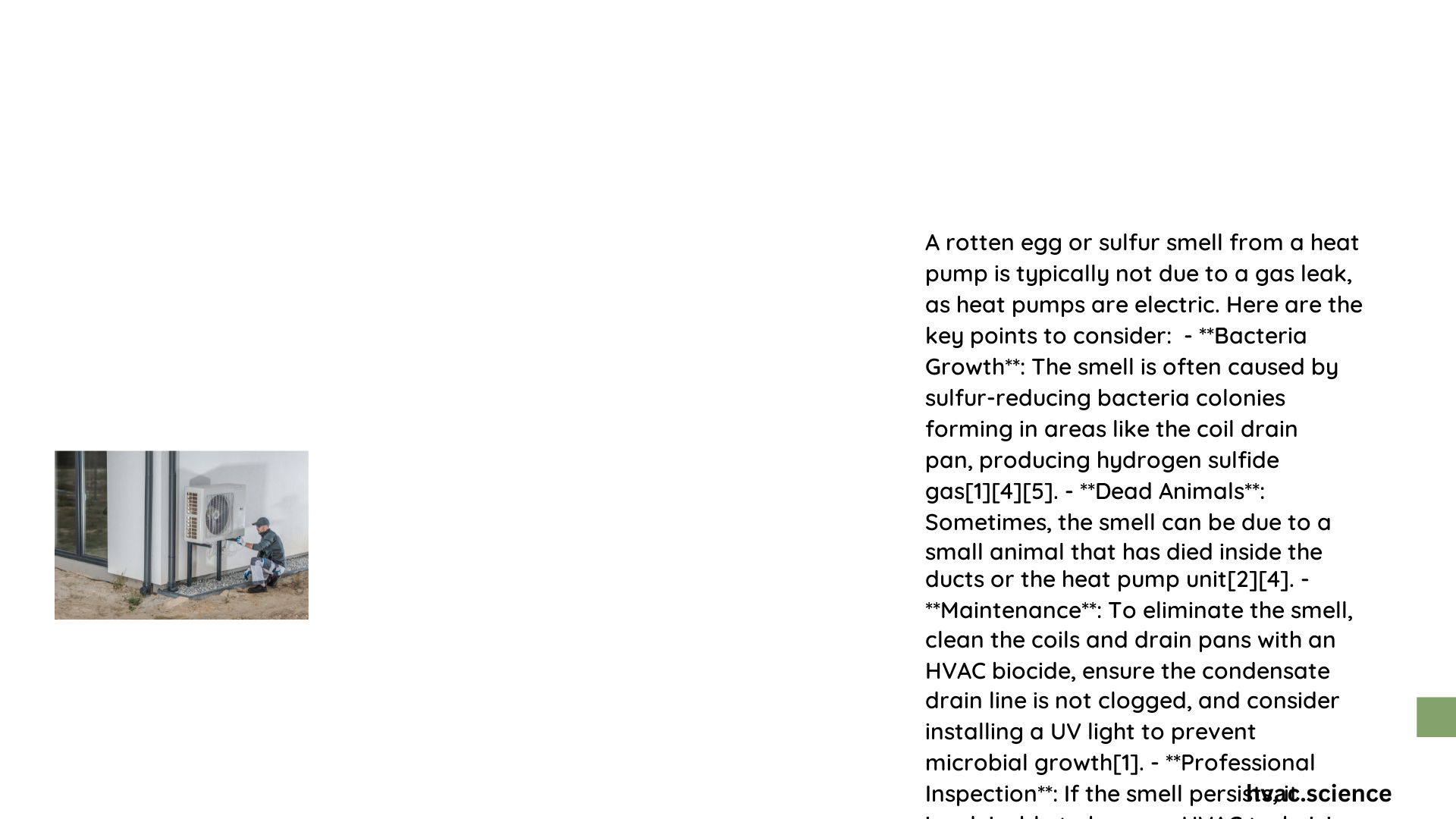A rotten egg smell emanating from your heat pump can be alarming and unpleasant. This distinctive sulfur-like odor typically indicates underlying issues within your heat pump system, ranging from bacterial growth to potential animal intrusion. Homeowners experiencing this problem need a comprehensive understanding of the causes, diagnostic steps, and effective resolution strategies to restore their system’s performance and indoor air quality.
What Causes the Rotten Egg Smell in Heat Pumps?
Bacterial Contamination Mechanisms
Heat pumps create moisture-rich environments that can become breeding grounds for sulfur-reducing bacteria. These microorganisms thrive in:
- Condensate drain pans
- Evaporator coils
- Ductwork with accumulated moisture
| Bacterial Growth Conditions | Risk Level |
|---|---|
| High Humidity | High |
| Stagnant Water | Very High |
| Lack of Regular Cleaning | Extreme |
Potential Wildlife Intrusion
Small animals might enter heat pump systems seeking shelter, potentially causing decomposition odors if they become trapped and die. Common entry points include:
- Exterior unit openings
- Damaged ductwork
- Loose system connections
How to Diagnose the Rotten Egg Smell?

Systematic Inspection Process
Homeowners should follow a methodical approach:
- Power Down: Immediately switch off the heat pump at the circuit breaker
- Visual Examination: Inspect internal components for visible contamination
- Odor Tracing: Determine whether smell originates from specific vents or entire system
Professional Diagnostic Techniques
HVAC professionals employ advanced diagnostic methods:
- Thermal imaging cameras
- Moisture detection tools
- Microbial growth assessment equipment
What Are Effective Cleaning and Remediation Strategies?
DIY Cleaning Protocols
- Use specialized HVAC biocide cleaners
- Thoroughly clean condensate drain pans
- Disinfect evaporator coils
- Clear condensate drain lines
Advanced Preventative Measures
- Install UV light sterilization systems
- Implement regular maintenance schedules
- Use high-quality air filters
- Maintain proper system drainage
What Are Potential Repair Costs?
| Service Type | Estimated Cost Range |
|---|---|
| Inspection | $50 – $200 |
| Basic Cleaning | $100 – $500 |
| Comprehensive Repair | $200 – $1,500 |
When Should You Call a Professional?
Seek immediate professional assistance if:
- Odor persists after cleaning
- Visible extensive bacterial growth
- Signs of significant system damage
- Unusual system performance
Critical Warning Signs
- Persistent sulfur smell
- Reduced airflow
- Unusual system noises
- Visible moisture accumulation
Prevention Best Practices
- Maintain 50-60% indoor humidity
- Schedule bi-annual professional inspections
- Replace air filters quarterly
- Ensure proper system drainage
- Keep exterior unit clear of debris
Pro Tip: Regular maintenance prevents 80% of potential heat pump odor issues.
Technical Insights
The rotten egg smell typically indicates hydrogen sulfide production, a byproduct of anaerobic bacterial metabolism in moist environments. Addressing root moisture causes is crucial for long-term resolution.
Reference:
– HVAC Maintenance Guidelines
– Bacterial Growth in HVAC Systems
– Heat Pump Troubleshooting
